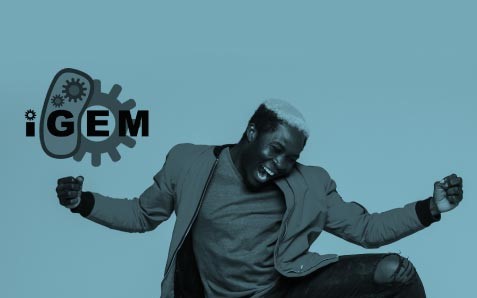iGEM 2021 review

From Nov. 4-14, 2021, iGEM, the International Genetically Engineered Machine, hosted 350 diverse teams, each comprising between 8 and 15 students from 46 countries and regions for the 2021 iGEM Competition. The competition strives to empower young scientists and engineers to identify solutions to problems facing our world by innovating safe, secure, and scalable projects with real-world applications. More than 60,000 individuals have participated in iGEM since its founding in 2013.
As a platinum sponsor for eight years, Integrated DNA Technologies (IDT) has had the pleasure of offering all registered iGEM teams up to 20 kb of gene fragments for use in supporting the organization’s mission of advancing the field of synthetic biology.
Made up primarily of university students, over the summer, teams roll up their sleeves and set their plans in motion, producing an array of project deliverables from safety forms to team posters and video presentations to formal abstracts. In the fall, teams gather for the Giant Jamboree, where their work is presented and judged.
Judging team projects is a complex undertaking
This year, approximately 300 judges engaged in live judging sessions, reviewed team presentations and promotion videos, and participated in livestream workshops and interviews using the iGEM judging rubric as the primary method for evaluation. While complex, the broad-range scoring rubric ensures consistent and fair evaluation, and is divided into three categories:
- Medals
- Project
- Special prizes
Within each section, judges score projects based on factors such as:
- Is the project likely to have an impact?
- Did the team convince you that their activities would enable more people to shape, contribute, and/or participate in synthetic biology?
- Is this useful to the community?
- To what extent did the team convince you that their Human Practices activities helped create a project that is responsible and good for the world?
For each of the given questions, judges then pinpoint how they felt about the quality of work within each of these areas using the following range of options: amazing, great, good, present, bad, and absent.
iGEM winners announced
After the results were tabulated, the 2021 iGEM teams walked away with the following impressive collection of medals:
- 50 bronze
- 101 silver
- 169 gold
To achieve Grand Prize accolades and claim rights to the BioBrick trophy, finalists were reviewed for overall excellence in their entire iGEM project. This year’s Grand Prize winners include three teams (one per area of study):
-
Overgraduate—Marburg for OpenPlast, a cell-free system using chloroplasts as rapid prototyping platforms for plant SynBio to drastically reduce testing times during the development of novel crops.
-
Undergraduate—Toulouse_INSA-UPS for ELIXIO, synthetic microbial consortium for sustainable violet fragrances.
-
High school—LINKS_China for Neolithic Age, a revolutionary cellulose leather substitute derived from inputs such as brewer’s yeast, kombucha, and E. coli, offering hope for a new balance between sustainability and style.
You can also view a recording of the Giant Jamboree award ceremony or watch the announcement of this year’s Grand Prize winners.
After iGEM
Beyond the competition, contestants can look forward to After iGEM, an ambassador program created to promote the organization’s mission of building a global network comprised of individuals willing to support iGEM teams as they pursue post-event work and/or other synthetic biology advancements. When the ambassador program began in 2017, there were only five founding members. Today, more than 128 members across 35 countries serve as iGEM ambassadors. For more information on how to join, stop by the recruitment page today.
What’s next for 2022?
As the excitement settled, students returned to school and work. Some will take these projects and carry them on into extended, funded projects, and with time, may bring some of these innovative ideas to fruition. On this note, the president of the iGEM Foundation and iGEM Europe, Randy Rettberg commented "The intention of iGEM was always to make an industry of synthetic biology—to enable a revolution in becoming good at materials. We're only 20 years into this revolution, but some students will turn their iGEM projects into their future work and make their dreams become a reality. They will see this revolution become really big over the course of their careers."
Until then, to all teams—good luck on formulating next year’s iGEM projects. We look forward to learning more about what you come up with in 2022!
